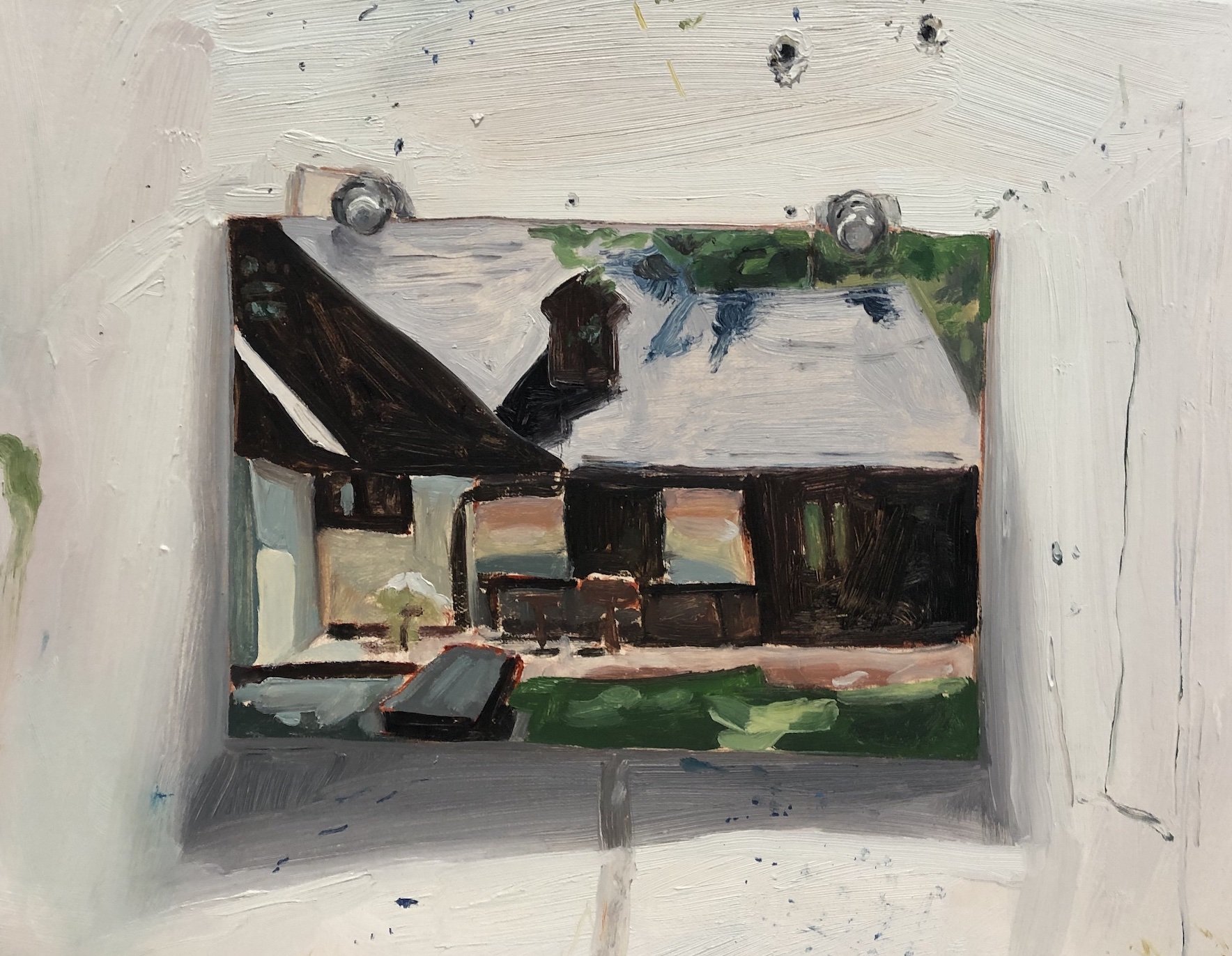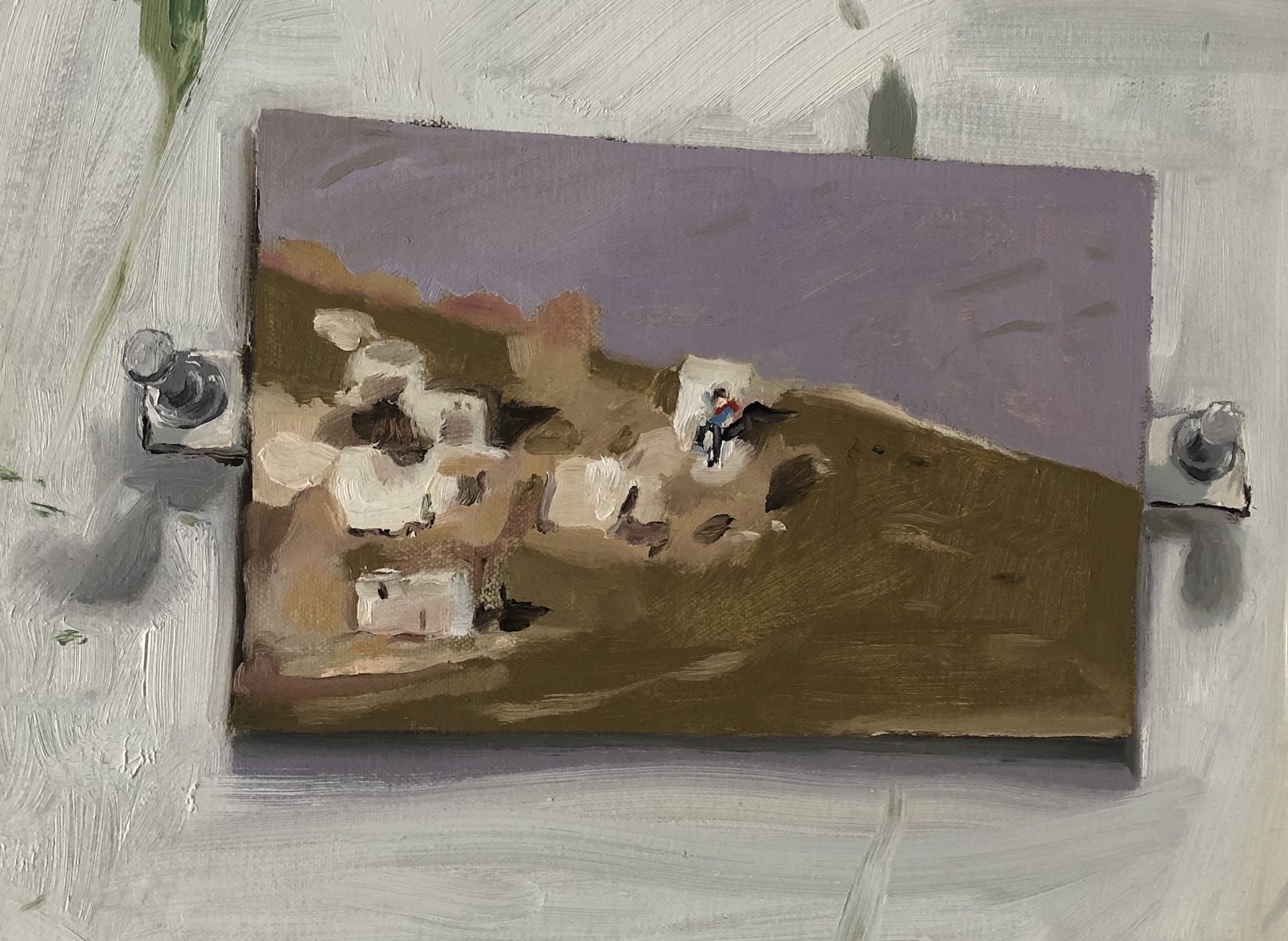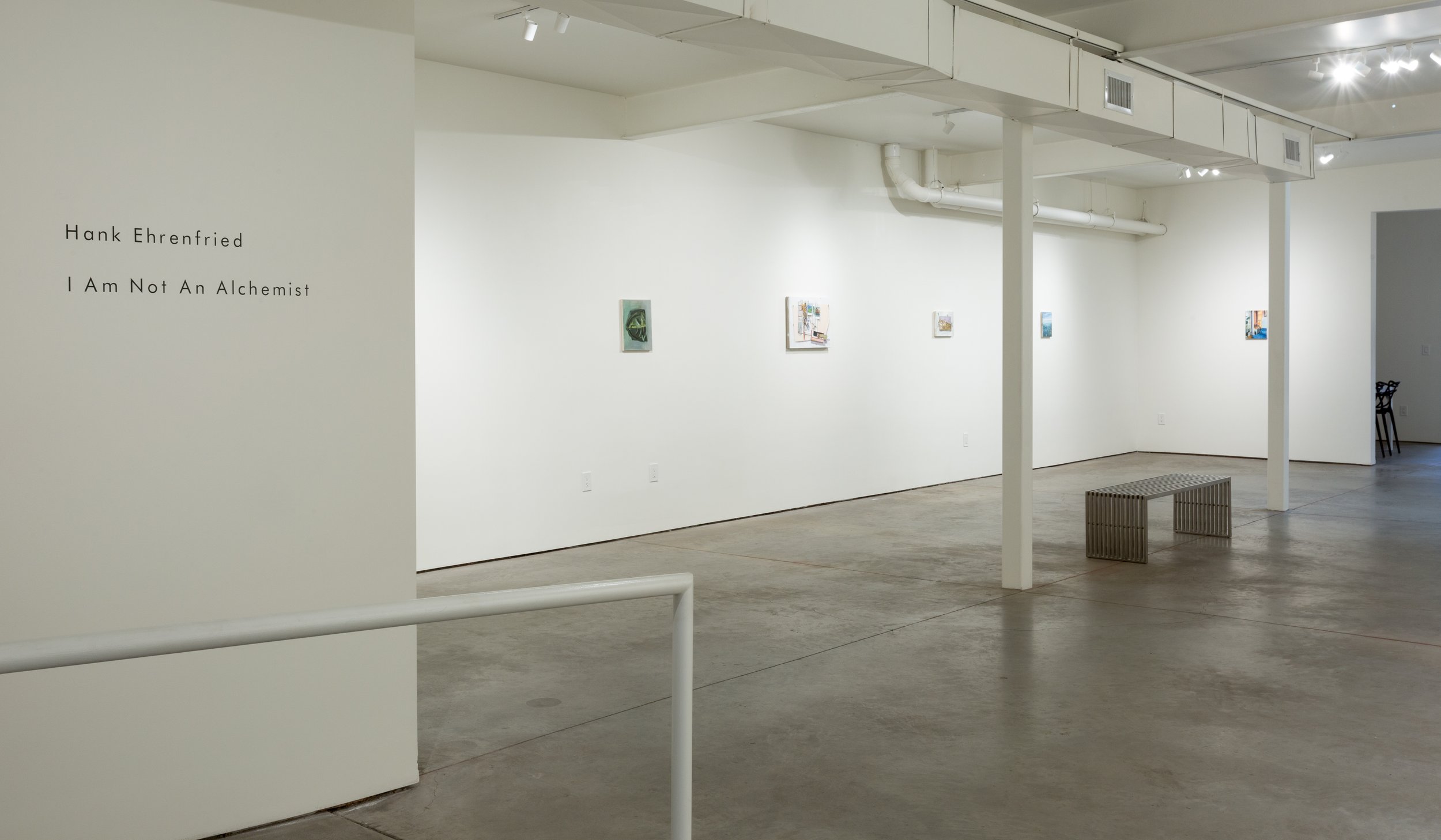November 19 - January 8
Hank Ehrenfried
I Am Not an Alchemist
Imi Knobel at the Broad
Misprint
Near Sunset Cliffs, CA; March 11, 2018 4:12 PM
San Diego Rose
First Landing State Park with Two Bald Eagles; January 3
Daffodils
Untitled (Back of the House)
Josh
Leaf in Four Parts
Foal Folded
Resting Model and Four Dogs
November 26, 2020
25, Foal
July 19, 2021 7:44 PM
Tiny New York and Tiny Jersey City; June 20, 2021 8:51 AM
Quappi Projects is pleased to present I Am Not an Alchemist, an exhibition of new works by Brooklyn-based painter Hank Ehrenfried. Small in scale but not in content, Ehrenfried’s paintings are dense with the weight of memory, intention, and the rich language of his chosen medium. Mostly completed in the last year and a half, this body of work developed as a response to the restrictive and surreal atmosphere created by the ongoing Covid-19 pandemic, which Ehrenfried says “seemed to part the curtain that covers the machine,” exposing, oxidizing, and altering his own methods in the process. Rife with symbolism and starry with varied and visible brushstrokes, Ehrenfried’s work is concerned with time yet also spans it. He looks back, not only into the depths of his own experiences but also through Western art history, reflecting a relationship with, for example, The Nabis painters of France—Vuillard, Bonnard, Denis, as well as the painters those painters inspired, like Fairfield Porter—and the subtext of a tender, muted Queerness plainly connects his practice to the most current conversations occurring in contemporary figurative painting.
The exhibition’s title comes from a piece of writing Ehrenfried composed the day after his 29th birthday; he often writes—for his own sake—as a sort of accompanying exegesis that expounds on the ideas explored in his painting. That the onset of the pandemic coincided with the coming end of his twenties wasn’t lost on Ehrenfried. Though he is, objectively, still young, the experience of aging is, in many ways, relative, and each of us individually explores uncharted territory with every passing day. Continuance, too, is both acutely personal and incredibly comprehensive; heavy with the burden of passing time and the zeitgeist’s anxious mood, Ehrenfried’s work illuminates the existential apprehension felt by so many Millennials—and those even younger—who have come of age at a time of great political, environmental, and cultural uncertainty. “It somehow feels more urgent to align myself with what is gone…and to catalog what is important to me before it becomes erased in future presents,” he writes. Out of this desire to protect and record what he loves, his compositions borrow from family photographs in order to savor and memorialize what is slipping away. In the midst of an epoch in which the world seems to be teetering on every possible precipice, Ehrenfried is fully aware of the futility and precariousness of preciousness, and isn’t under any illusion that he can be a savior. His orchestrated studio tableaus, with their collaged materials and folded, distorted images held aloft by pushpins, are a path to explore new possibilities, new shapes, and new realities. Compelled to record what he loves, Ehrenfried also understands that he must watch it be destroyed, erased, and forgotten; in that sense, he says, these works are “homage and violence simultaneously.”
Though concerned with loss and imbued with elegiac longing, Ehrenfried’s paintings manage to foster a feeling of balm. Possessing a gentleness and a quietude, they soothe. These delicate and melancholic works also reveal the artist’s deep commitment to materiality. Although they depict actual and very personal events, the details of what is going on are often too abstracted to entirely make out; this, along with his subtly expressive brushwork, affirms that his ultimate allegiance is to his craft rather than his subjects. Ehrenfried is a painter, not a documentarian. It is the act of eulogizing in paint, rather than the event remembered, that matters most. Still, his mark-making conveys a discovered connection between material and subject matter: both oil paint and memory are slippery and occasionally autonomously inclined, and much of the allure of each lies in the probing. Unable to halt the surge of what he calls “future presents,” Ehrenfried declares himself not to be an alchemist, yet by so deftly commemorating his own experiences he displays a beguiling grasp of temporality that belies his relatively young years; in shining a soft spotlight on the ephemerality of our collective existence, he urges the rest of us to consider what it is we wish to hold onto, and shows us how to accept its inevitable disappearance.
- John Brooks
Born in New Jersey in 1992, Hank Ehrenfried holds a BFA in painting from Carnegie Mellon University in Pittsburgh, PA and an MFA in painting from Pratt Institute in Brooklyn, NY. His work has been seen in solo exhibitions at AuxierKline (NYC) and Welcome Gallery (Charlottesville), as well as in group exhibitions at Fredericks & Freiser (NYC), Tuesday Gallery (Richmond), and Public Swim Gallery (NYC). He lives in Brooklyn, NY and was previously in Charlottesville, VA.






















